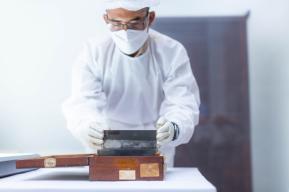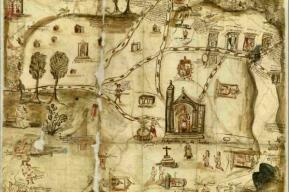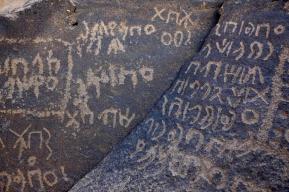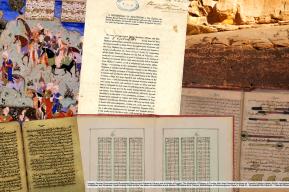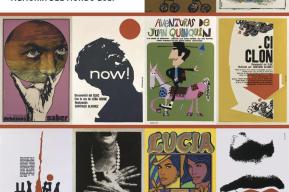Article
UNESCO marks 30th Anniversary of the Memory of the World
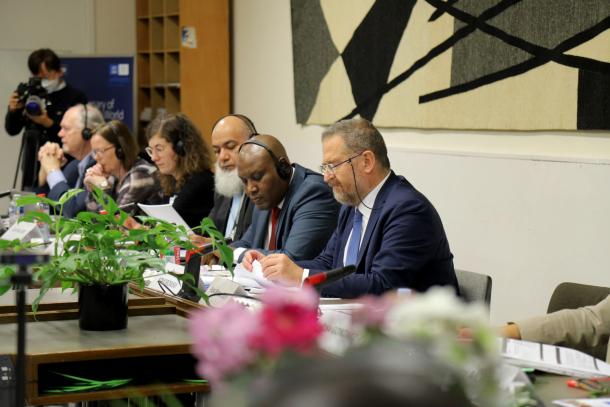
Representatives of MoW regional and national committees, international partner organizations, as well as UNESCO field office staff came together in a celebratory spirit as part of the MoW Global Symposium, held online and offline.
Under the theme “Your window to the world: Enlisting documentary heritage to promote inclusive, just and peaceful societies”, speakers at the symposium shared their institutions’ milestones in safeguarding the world’s documentary heritage, while also highlighting the role of documentary heritage in achieving Target 16.10 of the 2030 Agenda for Sustainable Development.
Documentary heritage, as an information resource, can be regarded as a critical catalyst of intercultural dialogue, international understanding and global cooperation, especially in today’s world characterised by misunderstandings and conflicts.
Set up in 1992, the MoW Programme has developed projects and initiatives focused on achieving inclusivity and access for the identification and preservation of documentary heritage – a point taken up by Ms Roslyn Russell in her keynote speech during the symposium.
A member of both the MoW Register Sub-committee and the Sub-Committee on Education and Research, she highlighted four key areas in which the programme can and does take initiatives to achieve Sustainable Development Goal 16, namely geographical inclusion; gender inclusion; social inclusion; and generational inclusion.
The structure of the Memory of the World Programme, which operates at international, regional and national levels, in itself promotes geographical inclusion.
On gender inclusion, Ms Russell said, “nominators to the International Register are now encouraged to identify elements in their nominations that have the capacity to enhance gender equality.”
With respect to generational inclusion, she highlighted the efforts by MoW Knowledge Centres in China, Mexico, Senegal and the Republic of Korea to embrace the younger generation through various programmes developed for schools.
The symposium culminated in the launch of a commemorative statement jointly developed by partners under the coordination of UNESCO’s International Centre for Documentary Heritage. The content of the statement was shaped by experts drawn from the MoW Programme’s network of national and regional committees, as well as international non-governmental organizations, such as the Co-ordinating Council of Audiovisual Archives Associations (CCAAA), the International Council on Archives (ICA), and the International Federation of Library Associations and Institutions (IFLA).
Launching the statement, Ms Claire McGuire, IFLA’s Policy and Research Officer, highlighted the need to celebrate the documentary heritage of marginalized groups, particularly given the issue of gender and socio-economic inequalities of access and use.
The statement calls for an effort to:
- ensure that documentary heritage is protected within memory institutions;
- make it readily available and accessible to all; and
- promote its use and re-use as a matter of fundamental freedoms.
The next steps stakeholders can take may include strategically identifying documentary heritage which promotes international cooperation and understanding, exploring how it can be used to help predict and handle crises or emergencies, and imagining innovative ways to connect the items on the [MoW] International Register to these goals.
Concluding the celebration, Ms Mary Egan, Chair of the CCAAA, highlighted the importance of keeping the history alive to preserve identity as a collective society, leading to a greater understanding that improves cooperation and fairness.
Audiovisual material can tell your story, your truth and your presence. It allows us to observe events we cannot attend, hear voices from the past who can no longer speak, and craft stories that inform and entertain. By listening to recorded sounds, watching films, reviewing documents, thinking about artefacts, we can not only appreciate the vibrancy of this culture, but ways they shape and reflect our history and future.
The Memory of the World Programme was established with the tripartite aim of facilitating preservation, by the most appropriate techniques, of the world’s past, present and future documentary heritage, assisting universal access to documentary heritage, and increasing awareness worldwide of the existence and significance of documentary heritage and thereby foster dialogue and mutual understanding between people and cultures.
Celebrating the 30th Anniversary of Memory of the World Programme
Global symposium



